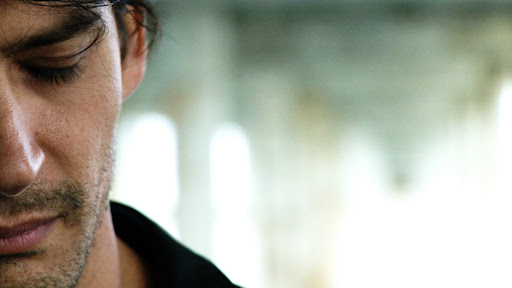
Paraiso
An Open Road Distribution presentation of a Camino Verde Films production. Produced by Lisa Rhoden. Directed, written by Leon Ichaso. With: Adrian Mas, Miguel Gutierrez, Tamara Melian, Lili Renteria, Ariel Texido.(Spanish, English dialogue)
By RONNIE SCHEIB
Following 1979's "El Super" and 1996's "Bitter Sugar," "Paraiso" reps the final, bleakest entry in Leon Ichaso's widely spaced Cuban trilogy. At its center prowls a supposed representative of Fidel Castro's vaunted "new man," in the form of a personable young sociopath. Luckily, one need not share Ichaso's political beliefs to appreciate his portrait of an opportunistic killer insinuating himself, like a cancer, in an already fragile emigre community. Handsomely belying its reputed $30,000 budget, "Paraiso" detonates its protag's restless energy amid the luxury haunts of the rich. Theatrical prospects appear iffy, but the nervy pic could shine in ancillary.
Having braved stormy seas on a raft, Ivan (Adrian Mas) washes up in Florida to join the father he never met, legendary radio personality Remigio (Miguel Gutierrez), who bemusedly welcomes his lost son into his fabulous, art-filled beachfront home.
Ivan's star rises quickly. When a low-level job falls through, Ivan's clandestine affair with his dad's longtime mistress (Lili Renteria) snags him a one-shot modeling gig that soon has his photo plastered across billboards, causing dreams of Hollywood stardom to dance in his head.
But Ivan's idyllic existence is menaced by a small-time crook from his past. Forced, or so he believes, to exterminate the threat before it destroys him, he starts to imagine threats everywhere and sets about eliminating them -- even the adventuresome gamine (Tamara Melian) he's fallen in love with.
Ichaso's layered editing style, applying staccato images like tiny brushstrokes, proves especially suitable for capturing the jittery nature of a creature whose survivalist instincts don't allow him to see further than the next enemy. HD lensing carves depths in the nighttime streets and blurs the limits of the daylit ocean, creating a mirage-like cityscape quite distinct from those in Ichaso's old "Miami Vice" episodes.
Ichaso also nails the smoke-filled ambiance of the latenight radio station where Remigio spins his anecdotal, quasi-poetic musings. Ichaso's own father was a Cuban radio celeb who stayed in his homeland for five years after his family fled, and the helmer's depiction of Remigio's moral makeup, tinged with a certain self-satisfied complacency, reads ambiguously.
Obviously a first-class bon vivant and remarkable raconteur, Remigio leaves much to be desired as a responsible parent. While he soon suspects Ivan may not be his son, or at least not one he wants to foist on Miami, he does nothing, fearful of endangering his comfortable lifestyle. Ichaso's corrosive vision of humanity, drowning itself on the shores of paradise, finally spares no one.
Camera (color/B&W, HD), Henry Lynk, Henry Vargas; editors, Juan Carlos Garza, Sebastian Jimenez; music, Alfredo Triff; music supervisor, Ken Weiss; production designer, Luis Soler; sound, Jose Marquez; sound designer, Bruno Canale; re-recording mixer, Robert Fernandez; associate producers, Juan Garza, Mariano Ros, Mari Ichaso. Reviewed at New York Latino Film Festival, July 29, 2009. Running time: 100 MIN.
Read the full article at: http://www.variety.com/review/VE1117940849.html?categoryid=31&cs=1&query=paraiso
See Paraiso's trailer at: http://www.youtube.com/watch?v=fN7btoGVhaQ
















